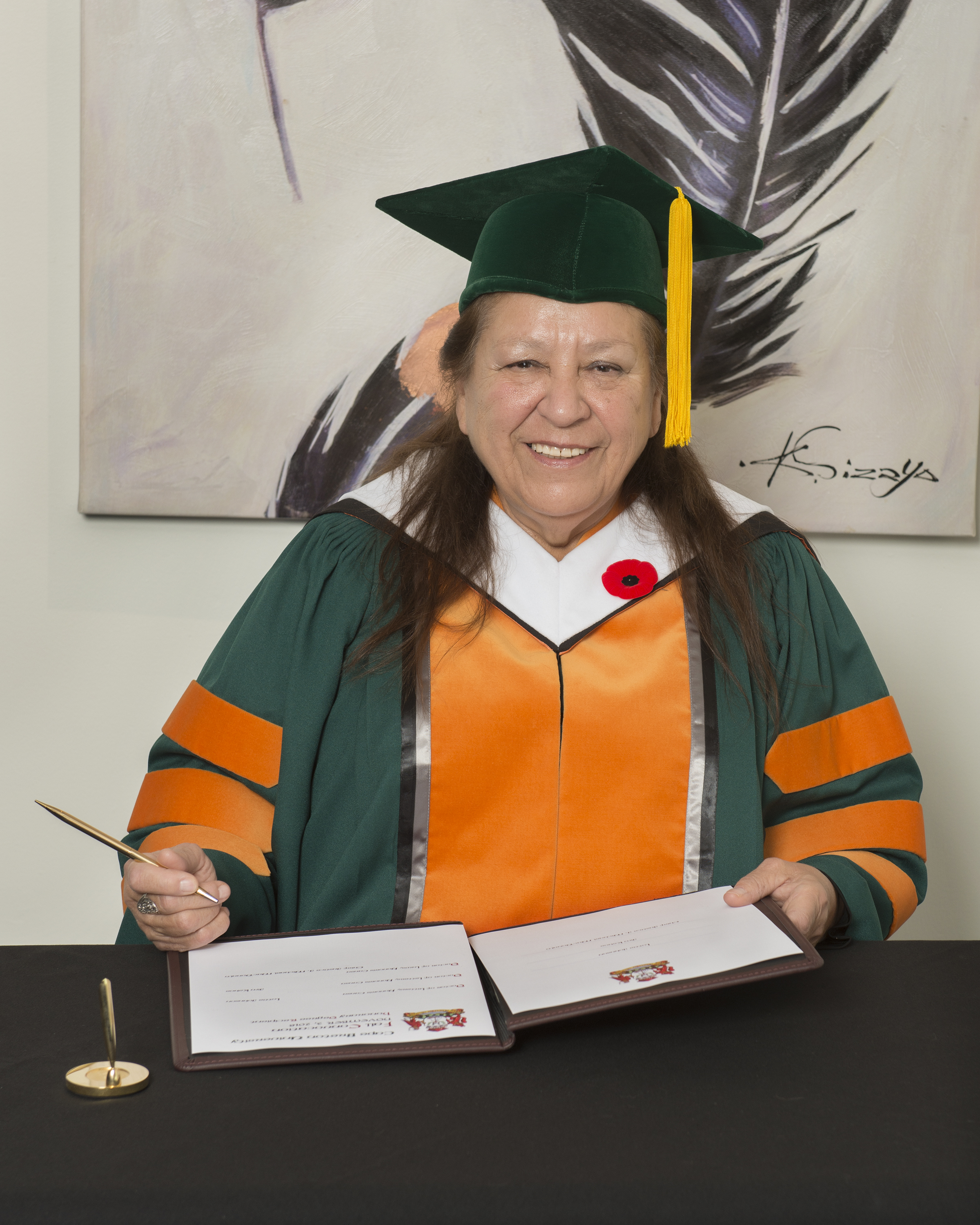Lottie Johnson
 Cape Breton University is delighted to honour and recognize a woman who has advocated for the rights of Mi’kmaw people and helped preserve the L’eu way within her community of Eskasoni and beyond, Thunder Woman, Lottie Johnson.
Cape Breton University is delighted to honour and recognize a woman who has advocated for the rights of Mi’kmaw people and helped preserve the L’eu way within her community of Eskasoni and beyond, Thunder Woman, Lottie Johnson.
A mother, grandmother, and Traditional Mi’kmaw woman, Lotti Johnson resides in Eskasoni First Nation on Cape Breton Island. Lotti has a large family with four daughters, and one son. Lotti is the daughter of Margaret (Dr. Granny) and John T. Johnson. Lottie was one of thirteen children, nine of whom attended the Shubenacadie Indian Residential School in Nova Scotia, Lotti included.
From the age of ten to 16 years, Lottie spent time in and out of Indian Residential Schools. After several years at the Indian Residential School., Lottie returned to Eskasoni and could only speak English causing a great strain on the relationship with her family and community. Eventually Lottie learned to speak the Mi’kmaw language and began to practice her culture. At the age of 19, Lotti moved to Boston where life was difficult with struggles with drugs and alcohol abuse and a tumultuous relationship with her then husband and children. While in Boston, Lottie began working for the Boston Indian Council. Lottie worked hard and became sober with a new goal of rebuilding relationships with her past, and to find a way to heal and move forward. After her sister passed away, Lottie returned home to Eskasoni to discover that her mother would be the source of her healing. In 1982, Lottie began upgrading her education. Lotti returned to school and graduated from Cape Breton University with a Bachelor of Arts in Community Studies in 1991. Lottie began her career with the Native Alcohol and Drug Addictions Counselling Association (NADACA) working in many roles until eventually becoming a Certified Addictions Counsellor. At the age of 70, Lottie retired from NADACA and continued to share wisdom, guidance and the traditional ways of healing to support others in need in her community who struggle with mental health and addictions. Lottie also worked with Nora Bernard as board member for the Shubenacadie Indian Residential School Association (SIRSA) from 1995-2007 to develop the lawsuit against Canada and the Church on behalf of the survivors. This Lawsuit was joined with the Baxter National Class Action lawsuit in Ottawa, representing 80,000 survivors in Canada. In 2006, the group won the largest Class Action Settlement Agreement in Canadian history worth $5 billion to date. Lottie was appointed to the Indian Residential School Survivor’s Committee of the Truth and Reconciliation Commission (TRC) from July 2009 to June 2015 as the Atlantic Regional Representative. Lottie has also worked on the Missing and Murdered Indigenous Women National Inquiry.
Cape Breton University confers the degree Doctor of Letters, honoris causa, to a woman who help change a nation through her work in Indigenous rights and her role in the Truth and Reconciliation Commission.
